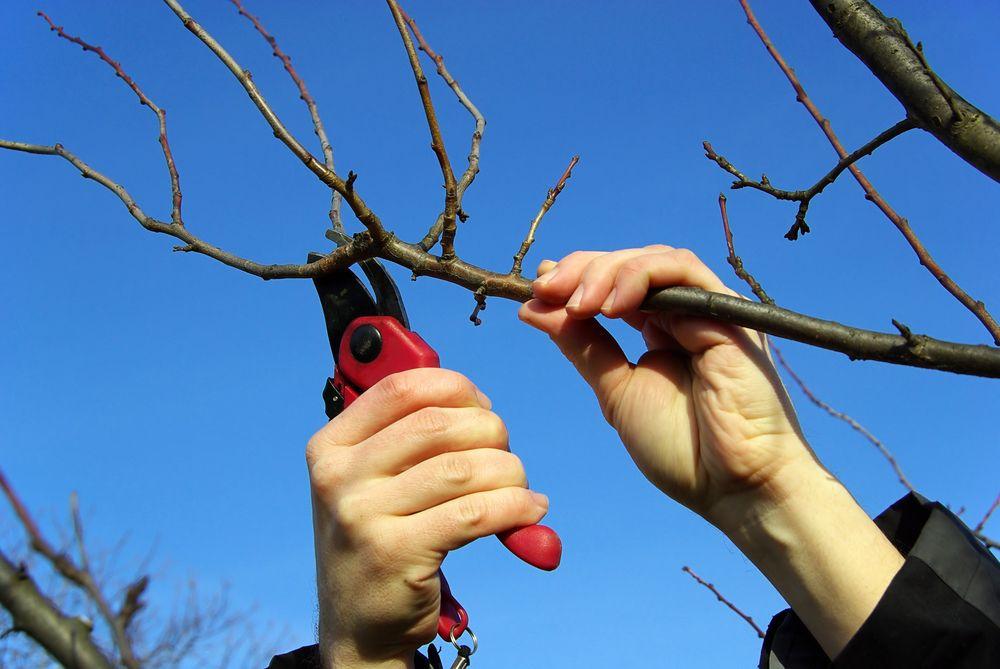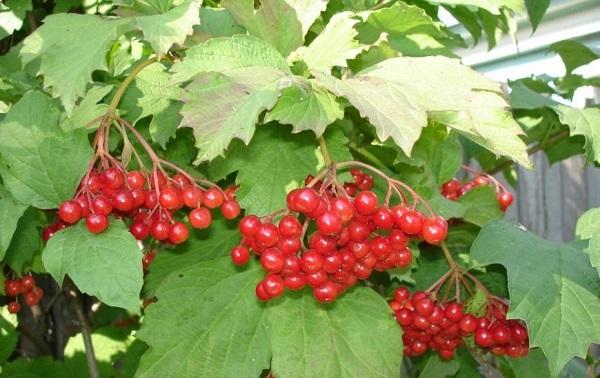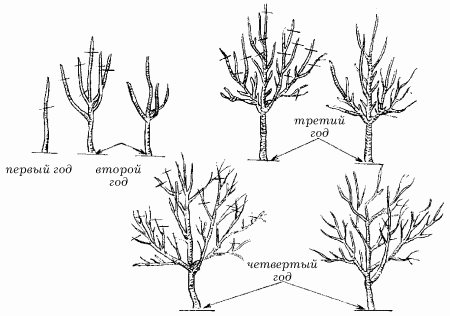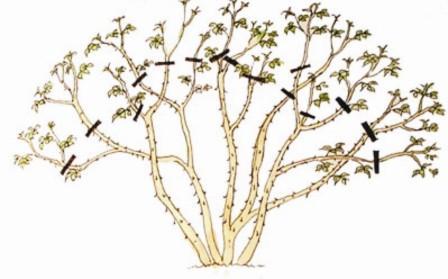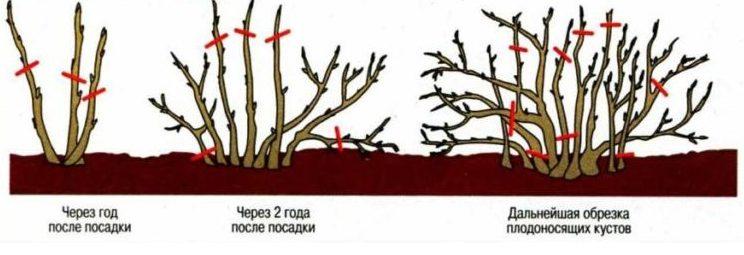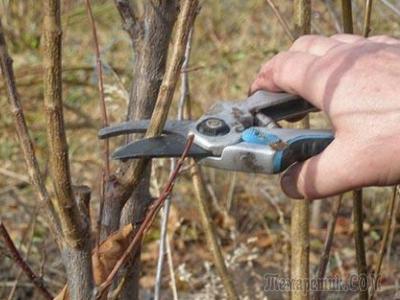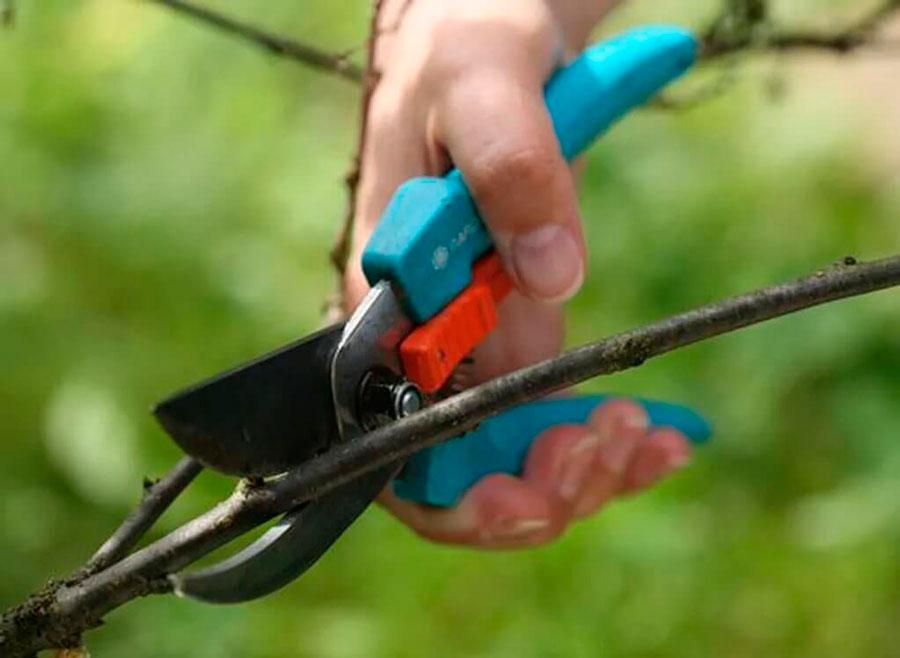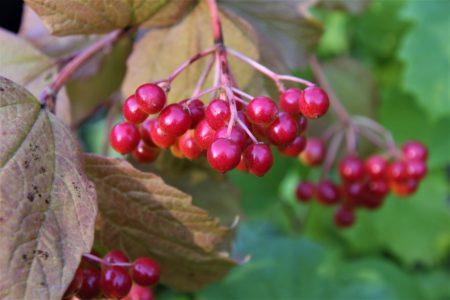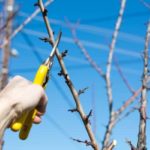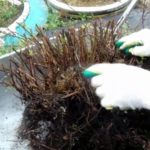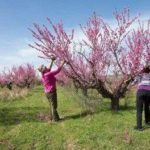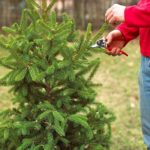Viburnum is a beautiful perennial that can grow as a bush or small tree. Gardeners often grow this crop because it retains its decorative value throughout the year. However, for this it is important to provide the plant with adequate care. Proper pruning of viburnum makes it possible to form a neat plant and increase its productivity.
Does viburnum need pruning?
Despite the fact that viburnum is considered a cultivated plant, it retains the characteristics of wild bushes.Without proper care, there is a risk of excess side shoots and overgrowth, which negatively affects the appearance and health of the crop.
Every year, new shoots outgrow the old ones and stretch towards the sun. In this case, flowering and fruiting move to the upper parts, while the lower branches are in the shade and gradually die off. Literally after a few years, viburnum takes on an unattractive appearance and stops bearing fruit.
When to prune viburnum
For pruning to be successful, it is important to choose the right time to perform this procedure. However, there are several options that have certain features.
in autumn
After the end of fruiting, it is recommended to carry out sanitary pruning. It involves the removal of dried branches, which differ from other shoots by their dark bark.
At the same time, it is important to remove diseased shoots that are covered with spots and peeling bark, depressions, and growths. Cut shoots should be collected and burned. This will help prevent the spread of diseases.
In summer
In the summer, viburnum needs not only sanitary pruning, but also thinning pruning. Most often it affects green shoots. In this case, you need to remove the following:
- Overgrowth. Removing it will help give the viburnum more strength to lay and ripen buds.
- Tops. If pruning is carried out incorrectly, after which a large stump remains, many fattening shoots will grow. They have a vertical direction and are called tops.
- Tops affected by parasites and diseases. The plant often suffers from attacks by aphids, powdery mildew and leaf beetles.When symptoms appear, it is important to cut off and burn the lesions. This is done with the tips of the shoots.
in spring
Many gardeners prune viburnum in the spring - before the buds awaken. During this period, the culture is at rest. Therefore, the procedure does not harm her. In spring, it is recommended to get rid of dry, broken, diseased branches. It is also necessary to remove the remnants of berry clusters and thin out the crown.
Quite often, when pruning, gardeners remove the ends of branches that are too long. This helps to avoid excessive crown growth. Don't be afraid to harm the culture.
Systematic pruning has a beneficial effect on the fruiting of viburnum, since the remaining branches receive more nutrition from the root system.
Types of pruning
There are several options for this procedure, each of which has certain features.
Sanitary
This type of pruning is recommended to be done in the fall. It is performed after harvesting. When the viburnum has completely shed its foliage, the gardener should inspect it and remove the following fragments:
- diseased shoots;
- broken branches;
- dry and broken fragments;
- remnants of brushes.
It is not recommended to remove too many branches before winter. If there are severe frosts, there is a risk of the bush freezing. In fact, any pruning poses serious stress to the crop.
Thinning
Thinning is recommended every year. It is advisable to carry out this type of pruning in the summer. The optimal period is considered to be the time after the leaves bloom, but before the formation of the ovaries. In this case, you need to visually inspect the bush, find thickened areas and remove some of the branches.
They are usually directed inward and look like tops that are located next to each other.
Formative
The formation of the plant should be done 3-4 years after planting in open soil. Viburnum can develop in the form of a bush or tree. It is worth choosing the appropriate option taking into account individual preferences. It is also recommended to focus on the free space in the country and the location of the crop. Under natural conditions, viburnum grows in the form of a large bush that reaches a height of 2-3 meters. In this form it is found in forests. If you do not prune the plant, the viburnum will develop in the form of a bush.
To give it the correct shape, it is recommended to select 6-7 of the most powerful shoots. The rest need to be removed. The height of the bush should reach an outstretched arm. Subsequently, it is worth making sure that the plant does not produce too much root shoots. It is recommended to remove it every year. You also need to control the development of the upper part. If the viburnum stretches too much, it should be trimmed.
When performing pruning, it is important to take into account that fruiting occurs on one-year-old shoots.
Sometimes viburnum is grown in tree form. But in this case it may break. This is due to the high fragility of the trunk. Often the trunk can grow deformed. To support the culture, it is recommended to use supports. Stakes are perfect for this purpose. When growing viburnum in tree form, lower yields are observed. To form a plant, you need to select 1 powerful shoot and make a tree from it. It is recommended to remove the remaining branches. Today there are special varieties. They immediately grow on one trunk and form a tree.
Scheme of implementation
To properly prune viburnum, you should use the instructions for beginners.To form a bush, it is recommended to perform the following steps:
- After planting the plant, prune all above-ground shoots. There should be no more than 2-3 buds left on each of them.
- Next year, several more shoots will appear from each bud. When the branches reach 30 centimeters in height, they should be pinched.
- Then the bush will begin its recovery. During this period, the development of root shoots occurs.
- It is recommended to leave new shoots until their number reaches 7 pieces.
- The growth of the top should be left until it reaches the required height.
Practical recommendations
To prune viburnum correctly, it is recommended to follow the following advice from experienced gardeners:
- Pruning can be done when there is no sap flow. This is observed in early spring, before buds open, and in autumn, after the leaves fall.
- Formative pruning should be carried out exclusively in spring. The rest of the time, the bush simply will not be able to recover before the onset of cold weather.
- Under natural conditions, viburnum grows as a shrub. Therefore, it is not always possible to form a decorative tree from it.
- Anti-aging procedures should be carried out at intervals of 5 years.
- The crown should be thinned out in the summer. This helps to avoid thickening of plantings, ensure air ventilation in the leaf structure and prevent the proliferation of bacterial microorganisms and fungi.
- Every autumn it is worth getting rid of dried, diseased and brittle branches. This is required for the full development of the crop and increasing yield parameters.
How to prune different varieties of viburnum?
Gardeners usually grow 2 varieties of viburnum - the usual red one and its variety - Buldenezh.Pruning ordinary red viburnum does not have any specific features and is carried out using standard technology. Buldenezh needs to be pruned so that the end result is a lush bush with several trunks. In this case, it is recommended to shorten young shoots approximately 20 centimeters from the soil surface.
Inflorescences that appear in the summer of the first year must be removed. This helps stimulate the development of roots and branches. At the end of summer, the top of the shoots should be removed. This will improve branching next year. In the second year after planting, it is recommended to prune the viburnum after flowering has ended. Excess green mass should not absorb useful elements that are required for bud formation. Viburnum Buldenezh does not require spring pruning, as this will negatively affect the formation of inflorescences.
Pruning viburnum has a number of features. Thanks to strict implementation of the recommendations of experienced gardeners, it is possible to grow a strong and healthy plant that will have excellent decorative properties and produce a good harvest.

